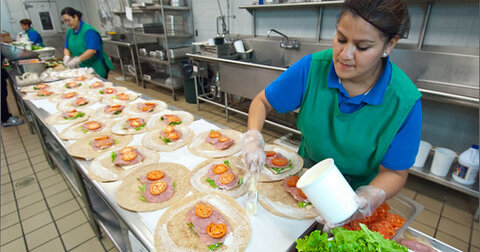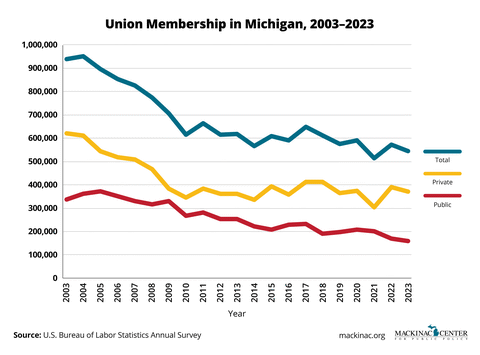No free lunch: Students aren’t embracing Michigan’s no-cost school meals
There’s been a mere 8% increase in students eating taxpayer-paid school lunches in Michigan
Michigan Gov. Gretchen Whitmer and legislative allies have repeatedly praised a state program that extended the federal free lunch program to higher income students in public schools.
The Legislature added $160 million to the school aid budget to provide free breakfast and lunch for all 1.3 million public school students in Michigan.
Whitmer said the change reduces stress, saves families $850 per student and is based on “the science of improving outcomes for students across the state.” State Superintendent Michael Rice called it “an investment that gives our children the opportunity to focus on learning and a healthier future rather than worrying about their next meal.” State Board of Education President Pamela Pugh compared these no-charge meals to clean air and clean water. Media accounts that focus on anecdotes call the program “wildly popular.”
Participation numbers show a different story. In 2016 the state’s schools fed an average of 784,195 no-cost lunches each day. Six years later, in 2024, with the $160 million appropriation, more than 850,000 kids eat these no-cost lunches regularly. That’s roughly an increase of only 8.4%. The number of no-cost breakfasts went from 384,927 to more than 474,000, an increase of approximately 23%.
What could explain the meager uptake for no-cost lunches? One reason is that the federal government has long provided them for lower-income students. Also rarely mentioned is that the federal Community Eligibility Provision program already provides free lunch and breakfast to all students, regardless of their income, if they attend a district with 40% or more low-income kids. More than 1,500 schools in Michigan participated in that program in 2023.
The only students benefiting from the extra state spending on subsidized school lunches are wealthier students enrolled in wealthier districts, said Michael Van Beek, director of research at the Mackinac Center for Public Policy.
“The extra spending appears to only have fed an extra 65,000 students in Michigan,” Van Beek said. “It’s unlikely this could have the much effect on learning or other outcomes in the state’s public schools.”
The Michigan Department of Education said in a press release that eating a breakfast at school has the following positive effects:
-
Higher achievement in reading and math
-
Better standardized test scores
-
More alertness and focus
-
Better concentration and memory
-
Better attendance
-
Less obesity
The department did not cite evidence for its claims.
Van Beek said it would be remarkable if simply eating breakfast at school produced such large, positive effects. “Whether and where students consume meals is only one of dozens of factors that influence student achievement,” he said.
Evidence of these effects have not showed up in the data yet. In Michigan, student test scores continue to trend downward and mass absenteeism has skyrocketed. More than 30% of students across the state missed more than 18 days of school last year and Michigan’s largest school district in Detroit has seen nearly 70% of its students chronically absent.
Michigan Capitol Confidential is the news source produced by the Mackinac Center for Public Policy. Michigan Capitol Confidential reports with a free-market news perspective.


 There are no free school lunches
There are no free school lunches
 Whitmer ignores taxpayer in school lunch pitch
Whitmer ignores taxpayer in school lunch pitch
 Michigan lawmaker admits: Free lunch is taxpayer-funded
Michigan lawmaker admits: Free lunch is taxpayer-funded



 Michigan must untether itself from UAW
Michigan must untether itself from UAW
 Workers at Mt. Clemens tooling company are on the way to decertifying the UAW
Workers at Mt. Clemens tooling company are on the way to decertifying the UAW
 UAW enters immigration debate, demands driver’s licenses for illegal immigrants
UAW enters immigration debate, demands driver’s licenses for illegal immigrants